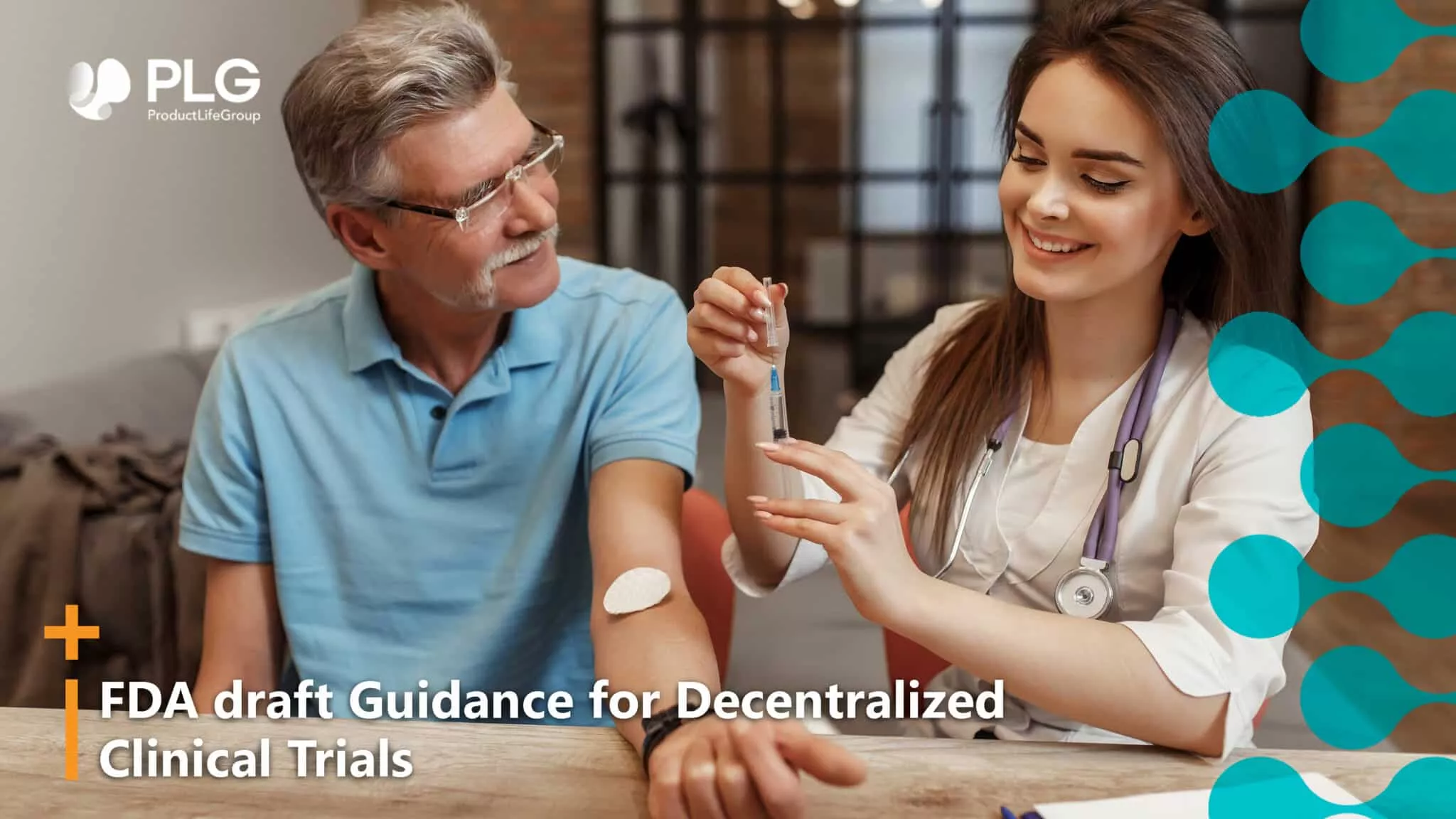
Decentralized Clinical Trials for Drugs, Biological Products, and Devices
20 september 2023

Usually, activities *in clinical trials are conducted in clinical trial sites that are experienced or well-versed in clinical trials. In fully decentralized clinical trials (DCTs), all activities occur at locations other than traditional trial sites, such as at the homes of trial participants or in local healthcare facilities that are convenient for trial participants. In hybrid DCTs, some trial activities involve in-person visits by trial participants to traditional clinical trial sites, and other activities are conducted at locations other than conventional clinical trial sites, such as participants’ homes. By releasing draft guidance, the U.S. Food and Drug Administration (USFDA) is taking additional steps to support decentralized clinical trials (DCTs) for drugs, biologics, and devices where some or all trial-related activities occur at locations other than traditional clinical trial sites.
Candidate for Decentralized Clinical Trials
A simple investigational product that is easy to administer or use, has a good safety profile, and does not need complex medical assessments is the best candidate for decentralized clinical trials. In case there is a need for complex medical assessments at clinical trial sites, and some tests can be performed remotely, hybrid decentralized trials would be better.
The Guidance for Decentralized Clinical Trials for Drugs, Biological Products, and Devices
The draft guidance provides recommendations for sponsors, investigators, and other stakeholders regarding implementing Decentralized clinical trials (DCTs) to advance medical product development and research. Examples of decentralized elements include obtaining laboratory tests at a local facility rather than a research medical center or conducting a clinical follow-up visit in the trial participant’s home using telemedicine.
Decentralizing clinical trials will allow some or all trial-related activities to take place at trial participants’ homes or other convenient locations instead of having them visit research sites. By reducing barriers to participation, DCTs will increase the breadth and diversity of participants in clinical trials and improve accessibility for those with rare diseases or mobility challenges.
Salient features in the guidance are as follows-
- The physical location where all clinical trial-related records for participants under the investigator’s care are accessible and where trial personnel can be interviewed should be ready for FDA inspection.
- Telehealth visits can be considered, and the protocol should specify the same.
- Local HCPs (doctors or nurses) may also conduct in-person visits and trial-related activities close to participants’ houses. Still, it is not part of the trial to perform certain trial-related activities, for example, on a fee-for-service basis.
- Unique trial-related activity or activity that requires detailed knowledge of the protocol or the IP should be performed by qualified trial personnel.
- During each remote trial visit, investigators should confirm the participant’s identity.
- Case report forms and other documentation should be completed for telehealth visits.
- The trial protocol should specify how adverse events identified remotely will be evaluated and managed. The protocol should describe how care will be provided for adverse events that require urgent or in-person attention.
- Sponsors should ensure that Digital Health Technologies used in a DCT are available and suitable for use by all trial participants.
- Investigators may obtain electronic informed consent from trial participants at their remote locations, provided all applicable regulatory requirements regarding informed consent are met.
- FDA recommends using a central IRB in DCTs to facilitate an efficient review of the protocol, the informed consent documents, and other relevant trial-related information.
ProductLife Group’s Support for Clinical Trials
This approach will facilitate the development of drugs, including in areas of medical need, resulting in more treatment options and improved patient outcomes. At PLG, we have a knowledgeable and experienced team of doctors, clinicians, pharmacists, and many other medical experts standing by to help you review your existing clinical and non-clinical data, provide feedback on additional studies to be conducted, and write protocols for your studies. We have support with clinical trial applications and the management and analysis of study data. Engage PLG and our experts if you’re confused or stuck on your next steps in your latest clinical and non-clinical trials.
Reference
Register to our news and events
Go to our Events to register
Go to our News to get insights
